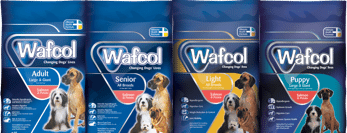Skin irritations can be very common in dogs, with many cases at the vets being dermatological. Breeds such as West Highland White Terriers, Staffordshire Bull Terriers, German Shepherds and Boxers can be susceptible to skin problems.
Skin problems arise from an inflammation or dermatitis, which causes irritation to the dog, making them scratch with either their claws or teeth. This can result in hair loss, more inflammation and more itching. The itching can also break the skin meaning bacteria can invade the site and cause an infection.
Skin diseases can be very difficult to diagnose and treat with the symptoms of many quite different skin problems having similar properties. Therefore accurately pinpointing the root of the problem can be an expensive and time-consuming process with causes ranging from fleas and mites, wool, drug hypersensitivity, bacterial skin disease and even food allergy.
You must initially try and identify what is causing the dog’s inflammation. Assuming that a trip to the vet has ruled out a bacterial skin disease, you need to ask questions such as have you used a new dog shampoo? Or changed the dog’s bedding? Or have you noticed any fleas or ticks on your dog? If the answer to all the questions is no then the next step is to investigate your dog’s diet.
Does the dogs diet contain any types of gluten? Gluten found in a number of cereal products, may be an irritant to the dog’s skin causing it to become inflamed and trigger the scratching/itching cycle that results in the reddening of the dog’s skin. An exclusion diet would be recommended at the stage, preferably one that is made without gluten. Wafcol’s sensitive range offers a number of diets that can be used to eliminate gluten, along with other potential irritants from your dog’s diet.

